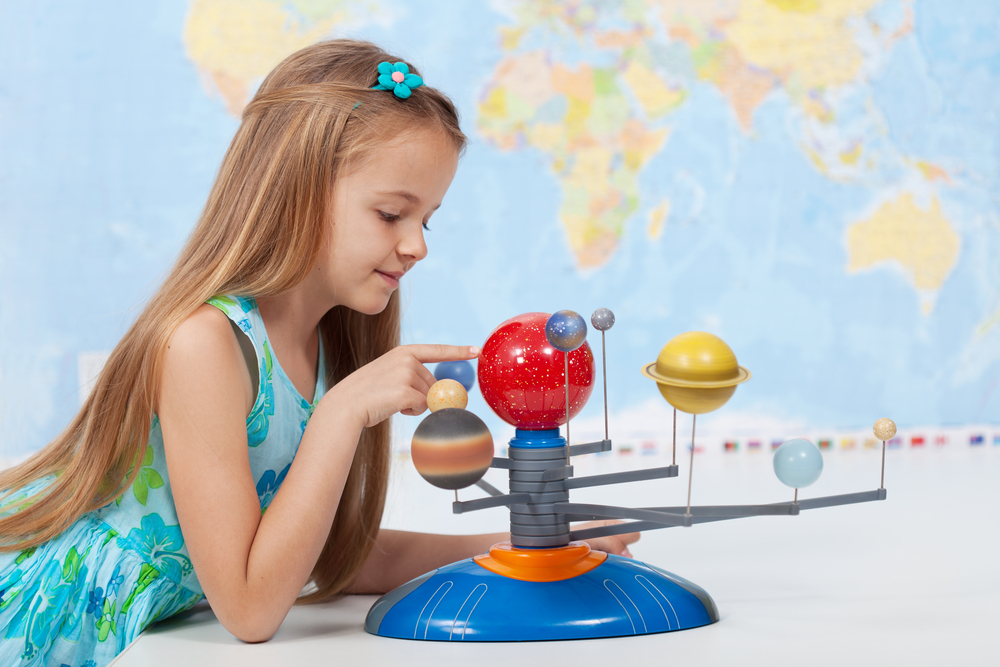Normal Songs and Poems worksheets activities for Ages 3-6
6 filtered results
-
From - To
Welcome to our engaging collection of songs and poems worksheets designed specifically for children ages 3-6! These fun and interactive activities reinforce early literacy skills through the joy of music and rhyme. Our carefully curated worksheets encourage kids to learn through singing, listening, and hands-on activities, fostering both creativity and cognitive development. With a variety of themes and formats, children will explore familiar tunes, lyrical patterns, and the joyful rhythm of poetry, making learning fun and memorable. Perfect for home or classroom settings, our worksheets provide the perfect springboard for sparking a love of language in young learners. Explore today!
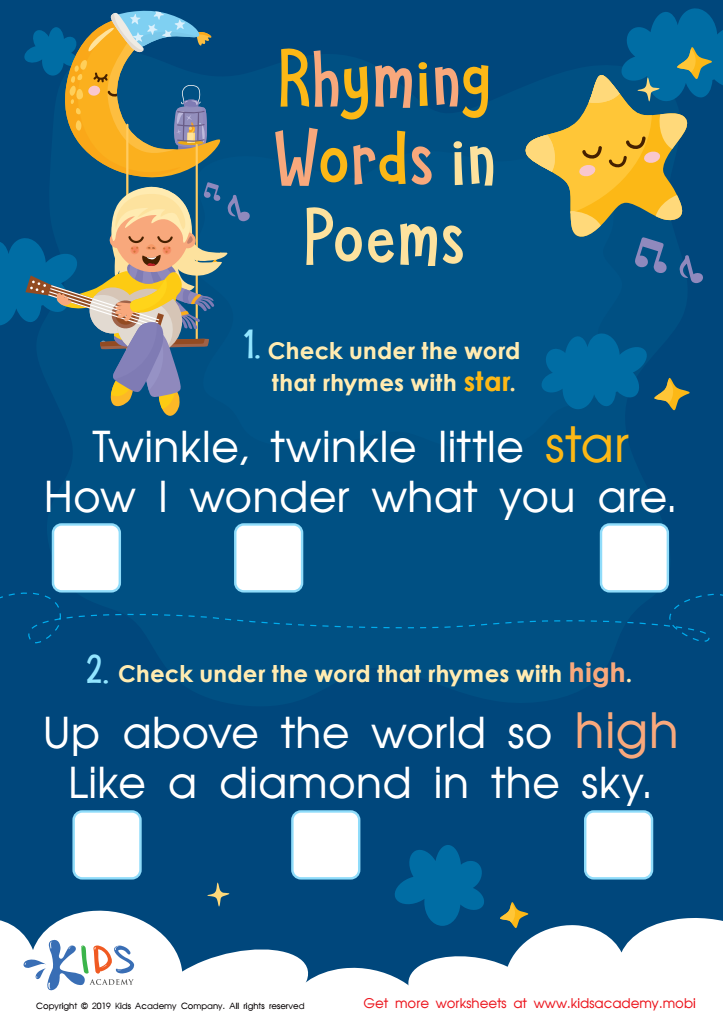

Rhyming Words in Poems Worksheet
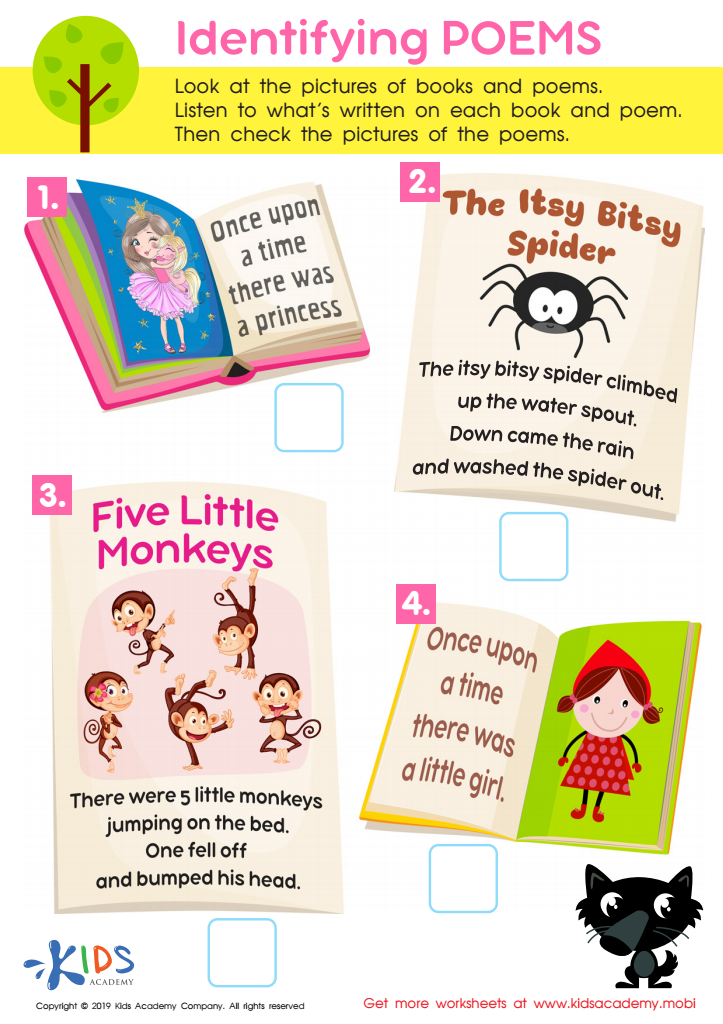

Identifying Poems Worksheet
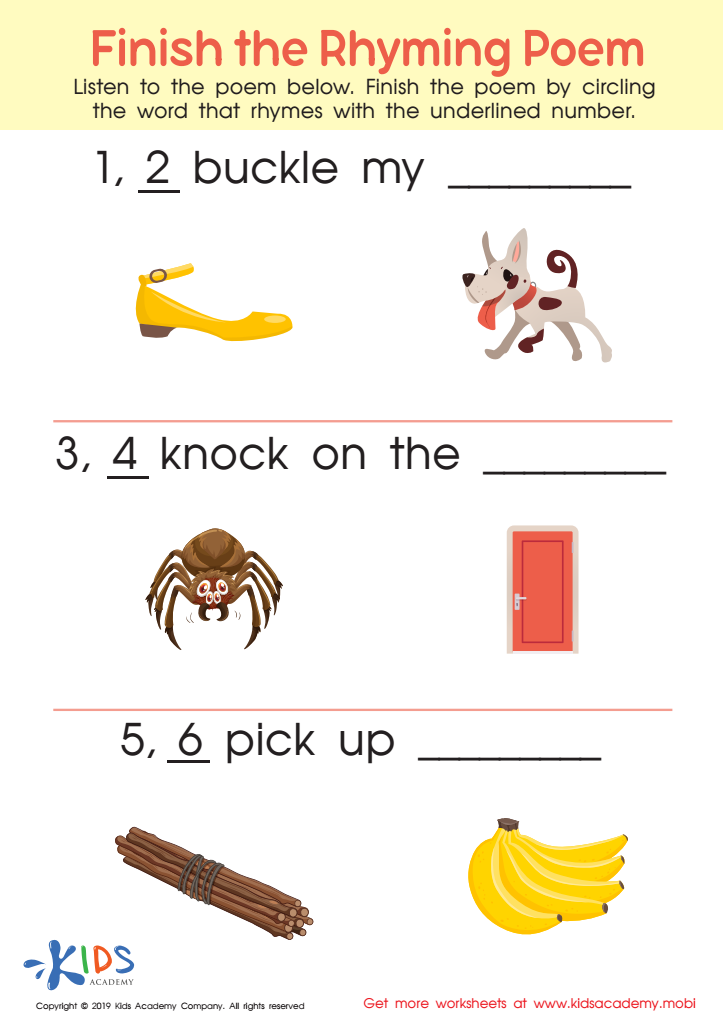

Finish Rhyming Poem Worksheet
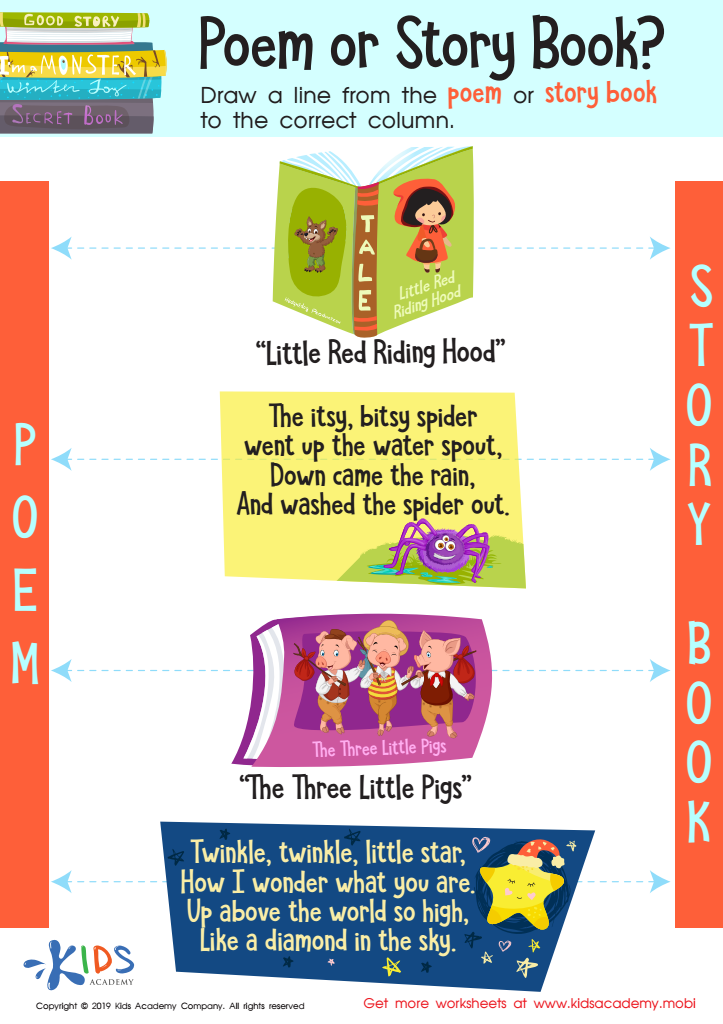

Poem or Story Book? Worksheet
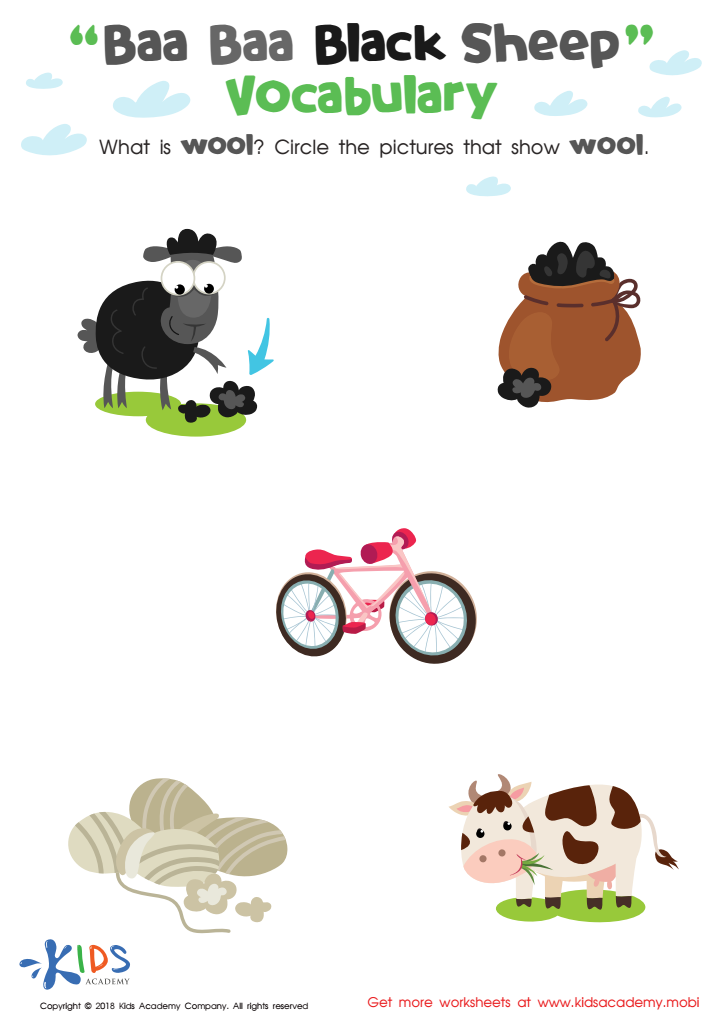

Baa Baa Black Sheep: Vocabulary Worksheet
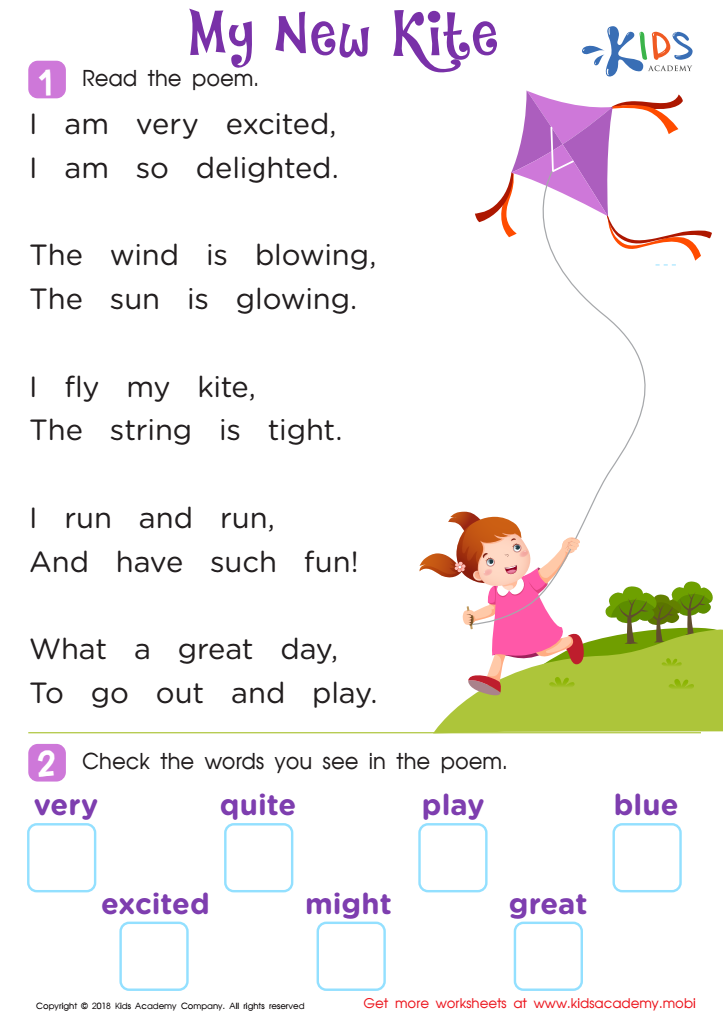

Poem: My New Kite Worksheet
Parents and teachers should prioritize Normal Songs and Poems for children aged 3-6 because these activities play a crucial role in early childhood development. At this age, children are particularly receptive to language acquisition, and engaging with songs and poems enhances their vocabulary, pronunciation, and auditory skills. Rhythmic patterns and melodies in music help reinforce memory and recall, making ideas easier to grasp.
Additionally, songs and poems often contain repetitive structures that promote phonemic awareness, a foundational skill for literacy. They introduce children to the sounds of language and help with early reading and writing abilities. Furthermore, these activities foster creativity and emotional expression, allowing children to connect words with feelings and experiences.
Beyond cognitive skills, Normal Songs and Poems offer social and emotional benefits. They provide opportunities for sharing, cooperation, and interaction during group activities, thus supporting social skills and emotional intelligence. Finally, incorporating songs and poems into daily routines develops a joyful approach to learning, instilling a love for language and literature at an early age. Overall, these activities are essential tools in nurturing well-rounded, communicative, and imaginative young learners.

 Assign to My Students
Assign to My Students





